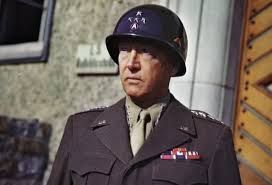Leadership
What's Your Leadership Style?
Not all leaders are created equally
Posted December 12, 2014
Sara is tough, at least her staff would say so. She would probably call herself responsible. She sets high standards for her staff and sees herself as a good role model for just stepping up and doing what you need to do.

Sara is tough, at least her staff would say so. She would probably call herself responsible. She sets high standards for her staff and sees herself as a good role model for just stepping up and doing what you need to do.
Mike, who long ago used to be a kindergarten teacher, was not only a positive guy, he's positive with his team – always ready to compliment folks, a big believer in pats on the back, a great listener to boot. His team actually thinks he's great.
Annie hasn’t been around much lately, both mentally and physically. She’s had a number of personal crises creep up in the past months and is either out on personal leave or when there cancelling supervision and even team meetings with her staff.
Some of the faces of leadership. Here are some of the common styles. As you read these think about your own style if you are leader or supervisor and / or think about your current supervisor or past ones.
Drill Sergeant. This is Sara. These types of leaders are very much of charge. They set high standards, tend to micromanage. Their team is not the one you’re going to worry about passing this year’s audit. Sara's tend to be short on praise, heavier on the chewing out.
What’s good with this style is that again standards are high, no slackers. The downside is not much nurturance, so staff can feel unappreciated. Bigger problem is that the staff become reactive and dependent. Nobody moves till Sara says so, and she's the one usually leading the charge. This is particularly frustrating for creative types who are always feeling held back. Eventually these talented people leave.
Mother Hen. So meaning to defame mother or hens here. This is Mike. Mother hens are on the opposite pole of the drill sergeants. Where they’re tough, mother hens are nurturing, supportive, empathic. The staff loves them because of the ever-present warm vibe.
The downside here is that these leaders tend not to be leaders. They don’t want to hurt others feelings, they don’t like confrontation and so standards can slip with mild, go-nowhere warnings. Worse case is that they don’t see themselves as part of middle management but one of the guys, often undermining the goals of upper management.
Inconsistent. You’ve probably had bosses like this. One week they are raging about billing, the next week that’s forgotten only to be replaced by angst about productivity. Or they tell you to feel free to call them if you have a question but then they never return the call, or say forget about calling, text, but then don't answer the text.
These folks are reactive and often emotional, riding the wave of whatever is going on above. Or they’re scattered and always changing their minds. What's hard for their staffs is that they come to realize that their bosses are unreliable. If they never return phone calls or are always going on rampages, employees feel unsafe and untrusting and may learn to bypass the boss and lean on each other. The staff don’t get the support they need and the supervisor loses the information she needs to maintain quality control.
Neglectful. This is Annie who is checked out. Sometimes these leaders are neglectful because like her they are preoccupied with personal problems – their mother has cancer or they're going through a divorce and depressed. Sometimes it is because they are burned out or coasting – only one year, three months and ten days till retirement but who’s counting.
Like those with the inconsistent boss, the staff realize they’re on their own. They either track down a surrogate supervisor or like kids in an alcoholic family who realize no one is going to cook dinner, they huddle together and do the best they can to take care of themselves. Again quality control is lost.
Crisis oriented. As the name implies, these leaders are great in any type of crisis. They are often adrenalin junkies or have ADHD. This style is fine if you are an EMT or work in some crisis / emergency setting, but if not these leaders often deflate after the crisis is over.
The problems here are two: Because they coast after a crisis, the infrastructure that they need to create to avoid a crisis never gets developed, leading to more crises. The other is that they are training their staffs to do the same – get hyped up in crisis mode but coast the rest of the time.
Balanced. This is our ideal, our gold standard. These are the leaders who can respond to crises well but then move forward and create that infrastructure. They have high standards but also are nurturing. They may change their minds from time to time, but they avoid drama, are not reactive, and are dependable and available.
So who are you? What the gap between this balanced leadership and what you or those around you provide? Time to take action, develop better skills, become more flexible?
Give it a think.




